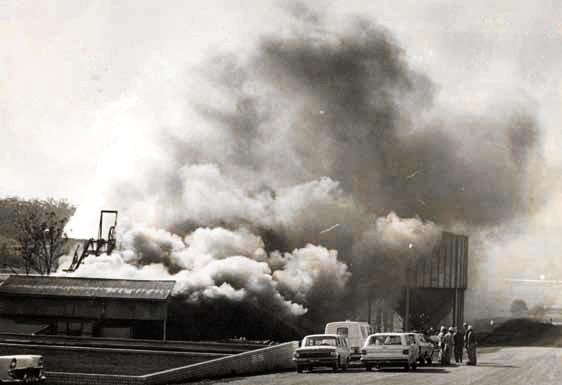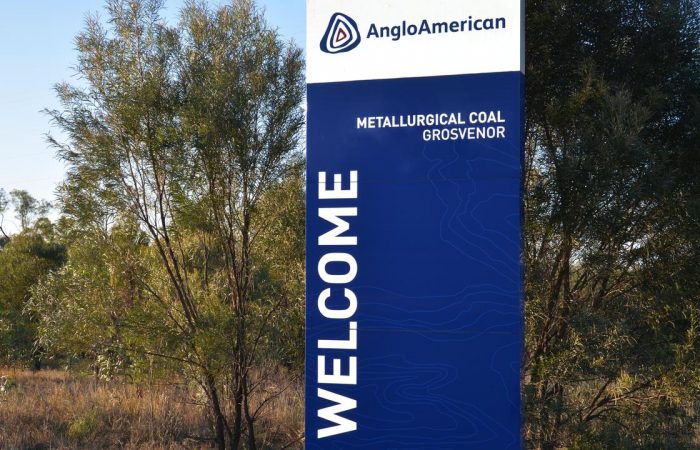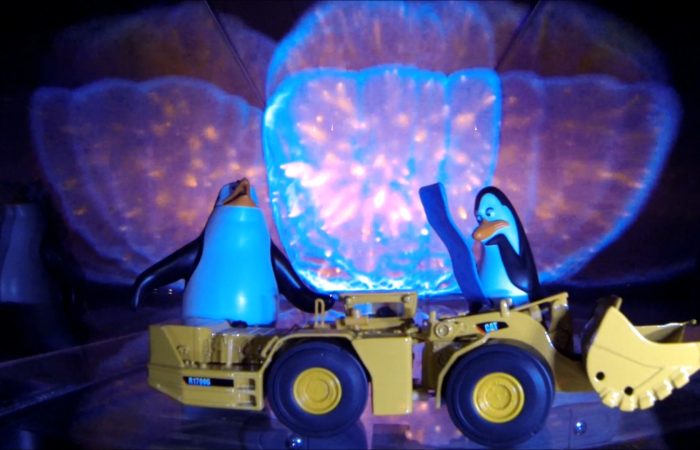
Statutory Officials Competencies Submissions Recommendations 1 and 2 Queensland Mining Industry
My submission is in the Tab below.
Statutory Officials Competencies Submissions Recommendations 1 and 2 Queensland Mining Industry
It is 18 pages all up including excerpts from the Torbanlea Royal at the end with testimony from the Mine Owner and Mine Manager
GROSVENOR MINE INQUIRY STATUTORY TICKETS SUBMISSION 1
All persons seeking a Queensland Coal Mining Statutory Ticket who come from other Mining Jurisdictions as a minimum must.
- Undertake the full applicable Queensland Mining Law Examination successfully
- Undertake the applicable Board of Examiners Panel Examination successfully
- Possess the applicable Recognised Safety and Risk Management Competencies (Shane Davis Coronial Inquiry- Annette Hennessy 2005)
- For both Surface and Underground Coal Statutory Certificates and Engineering Senior Supervisor hold the relevant competencies for the hazards that exist at the Mine.
For example
- The Underground Strata, Ventilation, Gas and Spontaneous
- For the open cut strata, mobile plant, explosives and water
- Engineering/Maintenance Senior Supervisors; Emergency Management, preparedness and response
5. There be new specific competency requirements for Site Senior Executive for Underground and Open Cut Coal Mines specific to the risks at the 2 types of Operations.
GROSVENOR MINE INQUIRY STATUTORY TICKETS SUBMISSION 2
It is recommended that the procedures for granting statutory certificates for underground coal mining and the conditions under which they are awarded, be reviewed.
In particular, it is recommended that certificates of Underground Mine Manager and Ventilation Officer not be granted for life
That a system needs to be developed and put into effect as soon as practicable that requires certificate holders to demonstrate their fitness to retain the certificate of competency on a regular basis, at intervals of not less than three and not more than five years.
FINDINGS AND RECOMMENDATIONS PREVIOUS QLD MINING ROYAL COMMISSIONS and MINING WARDEN INQUIRIES
- The Commission are of opinion that, in the majority of cases, the persons employed to manage collieries are very much below the standard in intelligence, and knowledge of mining, that should be required of men filling such responsible and important positions ; and that the employment of á higher class of men as managers would not only do much to lessen the danger from accidents, but would also be advantageous to the owners, inasmuch as it would lead to the better working of their mines.
1900 Torbanlea Royal Commission.
It appears no one questioned the course of conduct proposed, from which it follows that all present were apparently in agreement with the assessment of the position made by the manager, the Inspector of Mines and other members of the team when they conferred from time to time.
It appears that the failure of all these people to advert to the distinct possibility of danger from explosion stems from widespread lack of knowledge of the danger associated with conditions which prevailed that night.
That thought there was still a chance of controlling the fire by underground sealing is made manifest by their going underground on the last occasion. Mr Roach’s conversations with the Inspector of Mines and the Mine Manager immediately before the explosion serve to confirm this.
Whether a more accurate assessment of the position should have been made, and the men withdrawn, is, no doubt, open to question, but the fact remains that not a single person put forward a contrary proposal at any stage.
BOX FLAT Mining Warden’s Court Inquiry November 7, 1972
KIANGA 1975
(b) changes be made in the Queensland Coal Mining Act to provide for:
preparatory seals and the recognition and delineation of responsibilities of persons with technical authority superior to a manager.
Notwithstanding the fact that the Manager and Superintendent were actively involved, the mine organisation underground on the day was wholly inadequate in that:-
- No senior officials were left in charge throughout the period;
- No regular comprehensive sampling at specific sampling points was initiated;
- No checks were made to see that men did not enter goaf areas without the knowledge of the Deputy in charge;
- No attempt was made to get as near as possible to the fire site, i.e., the belt heading just outbye No.7 cut-through, after Jump and Allison were in the vicinity at about 11.30a.m.
LEGISLATION
(d) Provision be made in mines liable to spontaneous combustion, at the entrance to every pillar section for preparatory seals prior to the commencement of pillar extraction operations. The preparations should be approved by the District Mines Inspectors. The seals need not necessarily be explosion proof, but should be capable of rapid erection.
(e) The Queensland Coal Mining Act should be amended to provide for persons with technical authority superior to a Manager. These persons should be qualified managers under the Act and should bear the same statutory liability as Managers in respect to any acts to which they are party.
STATUTORY CERTIFICATES
We make one final observation with regard to legislation.
The Kianga Inquiry of 1975 recommended that Queensland and New South Wales coal mine safety legislation be standardised. Progress in this direction over the subsequent twenty years appears to have been glacial.
A number of personnel in positions of authority at Moura No 2 had come from New South Wales, the registered mine manager Schaus being a case in point.
Learning and applying different legislation intended to manage the same hazards must be seen as unnecessarily wasteful of the time and effort of key industry personnel.
It is, moreover, a hazard source of itself with State and Federal Mutual Recognition Acts of 1992 now overruling any requirement for a statutory official appointed from New South Wales to demonstrate knowledge of the Queensland coal mining legislation, and vice versa. There is a need for common legislation, finally, to be progressed into existence and at the Federal level if that is what it takes.
As demonstrated repeatedly in evidence, it should not be taken for granted that a statutory certificate of competency to practise as a mine manager, undermanager or deputy carries an assurance that the person possessing it is maintaining, and where necessary developing, the original knowledge base required for the appointment.
It is recommended, therefore, that the procedures for granting statutory certificates for underground coal mining and the conditions under which they are awarded, be reviewed. In particular, it is recommended that certificates not be granted for life and that a system needs to be developed and put into effect as soon as practicable that requires certificate holders to demonstrate their fitness to retain the certificate of competency on a regular basis, at intervals of not less than three and not more than five years.
The process should aim to ensure that certificate holders maintain a sound knowledge base on, and keep abreast of, technical developments in coal mining and most particularly those relevant to coal mine safety.
MOURA NO 2 FINDINGS 1996
SIR MICHAEL FARADY
In conclusion, we cannot but express a hope, that some step may be taken without delay, with a view to better afford a better education to the persons engaged to working in Colleries.
When attending the late Inquest we were very much struck with the fact that more than half of the pitmen who gave evidence, some of them of great intelligence, and one master wasteman were unable to write, or even to sign their name as witnesses.
Among the very many thousand who are now continually engaged in the coal mines, there will always be individuals of strong natural powers, who if they had mastered the elements of the sciences, might be enabled to invent new methods, or at all events, would be far more capable than people unconnected with the business, to appreciate the dangers to which they are exposed and to correctly judge of the adaption of philosophical principles to practice.
We believe therefore, that if the education of the miners generally and especially those that act over them, can be materially raised, it will conduce to the security of the lives of the men, and perfecting the art of mining, more effectively than any system of Parliamentary Inspection which could be devised.
Science in the pits: Michael Faraday, Charles Lyell and the home office enquiry into the explosion at Haswell Colliery, country Durham, in 1844
(95 Men and Boys perished in the Haswell Colliery Disaster 29th September 1844)
GROSVENOR MINE AND TORBANLEA SIMILARITIES
The circumstance of the multi-fatality explosion at Torbanlea are the closest to the circumstances at Grosvenor in the history of Queensland Underground Coal Mining Disasters.
(I have included some parts of the Torbanlea Royal Commission including testimony of the Mine Owner and Mine Manager at the end of this submission.)
Five Coal Face Mine Workers were involved in each.
They were Contract Coal Miners, not permanently employed by the Mine Operator/Owner
The most likely source of the Methane gas that exploded was through floor blowers.
The blowers came from a gassy seam some 2 feet below the mined seam and the inter-burden stone band that was too hard to remove except by explosive.
They were mining in the immediate vicinity of a fault and no methane was detected 15 minutes before the fatal explosion.
After the incident it was noted by all except the Mine Manager that there was evidence of floor heave that was not there prior to the explosion.
The parallels between the apparent attitudes of Mine Owners, General Managers (Site Senior Executives today), Underground Mine Managers and lastly the Mines Inspectors are proof yet again; that despite the in some ways exponential technological progress in the last 120 years has achieved little in the way of improving the way safety in managed in Queensland Coal Mines.
Those appointed Managers were
- Almost exclusively from “The Old Country” as they all refer to it in the Testimony. The OLD COUNTRY covered Scotland, Wales and England.
- Only 2 had any Managers Certificates and only one of those had done any study and passed exams to obtain it. The other had received a Certificate of Service as he was working as a Mine Manager when the Coal Mining Act of 1872 was passed.
- Most had not worked in methane rich mines in the Old Country or “Fiery Mines” as they refer to them.
- The only “Queensland Industry” Manager was the Manager at Waterstone Colliery and he had no Statutory Qualifications at all
26.04.2017 SSE instruction complaint + comments MRE – Grosvenor Coal Mine –
report-of-the-royal-commission(1)
Torbanlea Inquiry Excerpts Torbanlea General Manager Mine Manager



Hi Stuart,
Do you think that a 3 or 5 year time frame will work?, I can see in 5 years there being no mine managers to manage mines. We need mine managers like we need coal miners.
I think a better system is to let good managers and Vo’s get on with their job.
If a penalty system was introduced then the not so good managers will be identified and after accrual of enough points lose their certificate or have it suspended. Points drop off after a period due to improved outcomes.
Cheers
Coal Hog;
I did nothing more complicated that taking the wording virtually intact from the Windridge Moura No2 Warden Inquiry
I just thought its hard to argue with the Principal since that is what Frank and the Panel Recommended.
When we debated the issue out at the LARC (Legislation Review Committee) level and at the Advisory Council level the Management Representatives were always moaning about proposed strict criteria for Continued Professional Development and how to accrue points.
I should not have to do formal Training with written Assessments, I have a First Class Managers Ticket etc etc.
The real problem came out eventually.
“What happens if I fail?”
Other problems were that going to the Queensland Annual Health and Safety love fest on the Gold Coast and the like will not accrue anywhere enough points.
To do it more easily a Manager could prepare and deliver a suitable quality paper on an appropriate Topic, and deliver it at the Gold Coast instead of just turning up, going to the nightly functions and drinking copious quantities of red wine.
Of course that requires research and time, which Managers we were told they were far to busy for.
When it came to Deputies then the whining really started.
There are so many of them.
Cant we just do that with the mandatory 5 year refresher training?
We will just refresh them in what out PHMP’s and SOP’s say, how does that sound to you?
Do we have to give them the paid time to do proper training and assessments?
We would have to employ a few more to cover those absent doing Training.
It would not matter what I proposed the Management would say it was too onerous.
I will guarantee you one thing, no matter what sort of refresher time and training requirements,
Management when it comes to Deputies will either want much tougher process for Deputies to do mostly in their own time, than they have to do, or
Something much easier and just is just a tick and flick every five years like,
“We did 5 year Refresher Training into out PMHP’s and SOP’s for all our Deputies.
Look they signed the attendance sheet and ticked in all the right boxes”